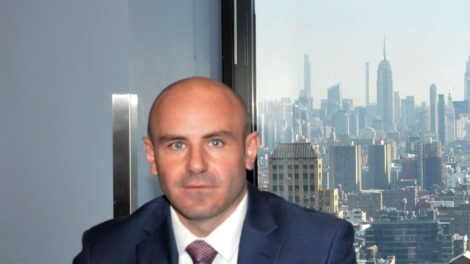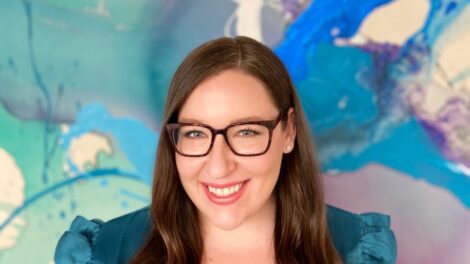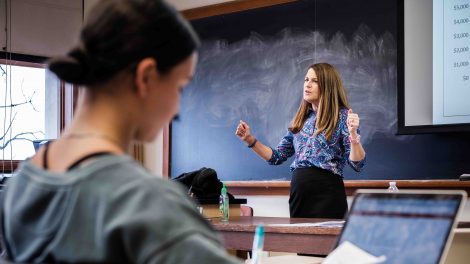Her academic exploration at Lafayette as an economics and history major opened different ways to understand the world
By Bryan Hay
Emily Fogelberg Anthony ’05 is senior director for global market development in the structural heart business at Medtronic, a global health care technology company.
In this role, she works to expand access to Medtronic’s technology for patients with aortic stenosis globally and improve lives. In 2014, Anthony was a Global Innovation Fellow for Medtronic working on a Type 2 diabetes program in South Africa.
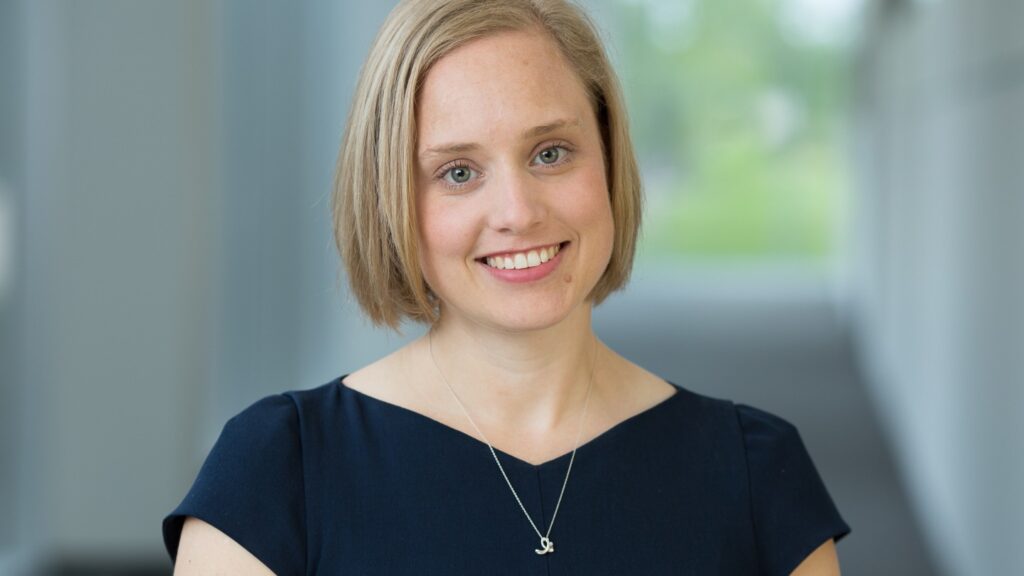
Emily Fogelberg Anthony ’05, senior director for global market development in the structural heart business at Medtronic
Before Medtronic, she worked with entrepreneurs in Rwanda with the design-thinking and social entrepreneurship group Think Impact. Prior to that, she started her own equestrian training and consulting business in Virginia. After Lafayette, Anthony received her MBA from the Darden School at University of Virginia. She completed her B.A. in economics/business and history at Lafayette College.
During her tenure at Lafayette, she worked with Landis Community Outreach Center, leading the Best Buddies and Equi-librium volunteer programs as well as an Alternative School Break team. Anthony volunteered with the Holla Back group, encouraging students to vote in the 2004 presidential elections, and completed an externship with IBM in government affairs.
During her senior year, she participated in Lafayette’s student-led lobbying effort against the genocide in Darfur, which led to the establishment of an Amnesty International chapter on campus. Anthony studied development economics under David Stifel, Charles A. Dana Professor of Economics and department head, and was an EXCEL Scholar with Prof. Ute Schumacher and Prof. Gladstone “Fluney” Hutchinson.
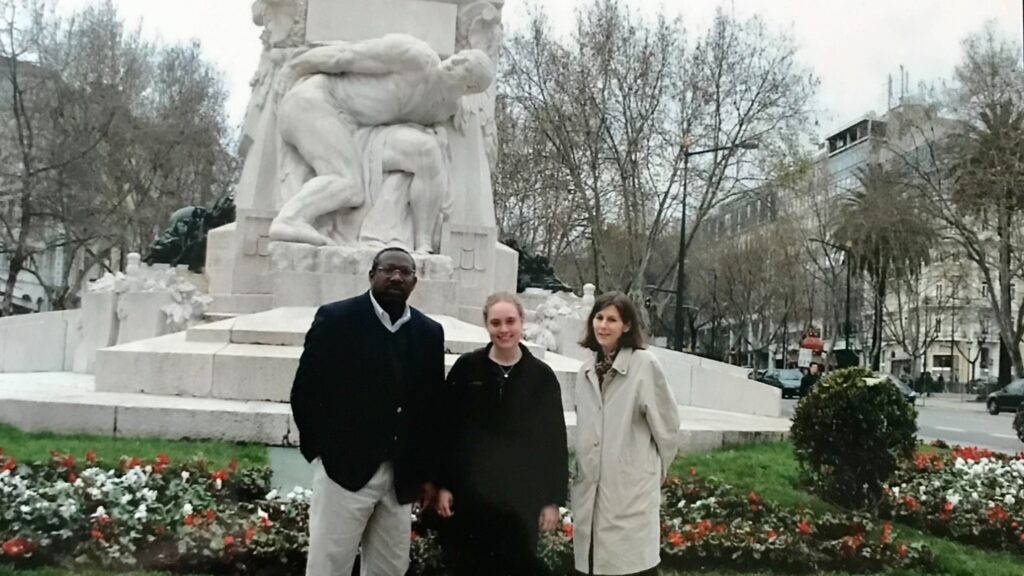
Emily Fogelberg Anthony ’05 with Profs. Gladstone “Fluney” Hutchinson and Ute Schumacher presenting research at Atlantic Economic Conference in Lisbon, Portugal, in 2004.
With her degrees in economics/business and history, she found that the two areas of study complemented each other.
Please describe the firm you’re working for and your current position, and why you find your career fulfilling and meaningful.
I am passionate about building markets, changing systems, and transforming health care. In my current role as senior director for Global Market Development in the structural heart business at Medtronic, a global health care technology company, I get to do just that. My team is responsible for expanding access to our technology for patients with aortic stenosis globally. Every day, we have the opportunity to change health care and to improve patient’s lives.
What led you to pursue economics and history degrees at Lafayette?
In my first year at Lafayette, I had the privilege of exploring a wide variety of courses, from psychology to biology, from mathematics to German, and, of course, history and economics. I was inspired by the diversity of topics and different ways to understand the world. At the end of the year, I realized that I always wanted to read my history and economics books first. I liked the logic and order of economics, and the storytelling and human side of history. They used different parts of my brain and complemented each other really well.
How did the economic and history programs prepare you for your career?
Lafayette challenged me intellectually and personally, and prepared me to be an active global citizen. I was an EXCEL Scholar with Professors Fluney Hutchinson and Ute Schumacher. Rather than asking what I wanted to be when I grew up, they asked me what kinds of problems I wanted to devote my life to solving. That question still helps guide my daily work and my career decisions today.
If you had an opportunity to give a sales pitch to a student considering pursuing Lafayette economic and history degrees, what would you say?
My coursework in economics and history at Lafayette exposed me to a broad range of topics. Engaging with faculty and debating with my peers taught me to look at problems from different perspectives, to ask hard questions, to seek understanding, to think globally, and to communicate my ideas effectively. These are still critical skills in everything that I do.


